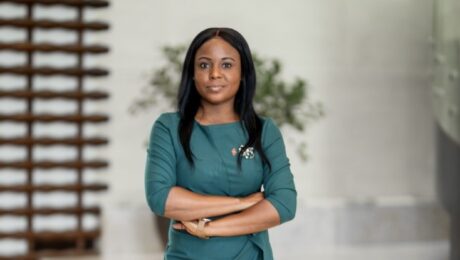Promoting Ethical AI Practices in Public Relations by Ann Adjasah
At the 8th Women in PR Summit Ghana 2024, one of the sessions titled “The Intersection of Ethical Artificial Intelligence (AI) and Public Relations (PR): Exploring How AI is Transforming the PR Landscape,” delivered by Baaba Cofie, Managing Director of Mahogany Consult, peaked my interest. This discussion highlighted that AI is no longer a futuristic concept but an integral part of various business practices, including medicine, engineering, finance, marketing, manufacturing, and notably, public relations. AI has permeated numerous aspects of PR, from data analytics and visualization to sentiment analysis, automated content creation, and media monitoring. Its usage empowers PR teams to glean actionable insights, predict trends, and craft targeted messaging proactively and strategically.
Companies such as Coca-Cola and IBM have integrated AI into their PR strategies, leveraging data analytics to gain insights into consumer behavior and preferences. This data-driven approach allows them to design more effective communication strategies and measure the impact of their PR efforts with greater accuracy. However, as PR practitioners embrace the power of AI, it is essential to consider ethical practices in its use, particularly regarding transparency, bias, and data privacy. The ethical implications of AI in PR demand careful consideration and proactive measures to ensure responsible usage and uphold public trust.
Ethical AI Practices in PR
As PR practitioners, we should know that we are ethical stewards of AI technology and play a crucial role in ensuring that AI is used responsibly and transparently, fostering trust and accountability within the profession. The motto of the Institute of Public Relations (IPR), “Image is everything,” should reflect in the usage of AI to ensure that the image of our organizations remains untarnished.
AI systems often require access to vast amounts of personal data, raising questions about how this data is collected, stored, and used. We must ensure transparency about our data practices and comply with relevant regulations, such as the Data Protection Act, 2012 (Act 843), which sets out the rules and principles governing the collection, use, disclosure, and care for personal data to protect consumer privacy.
Another ethical issue is the potential for bias in AI algorithms. If the data input into an AI system is biased, the outputs generated by these systems can perpetuate and even worsen existing biases, leading to unfair representation and potentially damaging a company’s reputation.
The transparency of AI in decision-making processes is also crucial. PR professionals should be able to explain how AI systems reach their conclusions, ensuring that stakeholders understand the rationale behind AI-driven actions. This transparency builds trust and accountability, essential for maintaining positive relationships with the public. Full disclosure of AI use within an organization is essential to develop an ethical framework that maintains transparency.
Balancing AI and Human Touch
Despite AI’s rapid development, we as PR practitioners have the unique ability to create novel stories and engage audiences with a human touch. AI cannot replicate the emotional connection and nuanced understanding that human interactions bring to creating compelling and engaging content.
We have direct access to our audiences, allowing us to generate firsthand data, communicate in diverse ways, and observe audience responses. AI models cannot control these human aspects. PR practitioners must be mindful of the information fed to AI chatbots and double-check the information they produce to mitigate any reputational risks.
Final Thoughts
As we look to the future, it is clear that AI will continue to play a crucial role in shaping how brands communicate with their audiences. By embracing AI, we can stay ahead of trends and respond to audience needs more effectively and proactively. However, it is essential to remember that AI serves as a supportive tool rather than a replacement. The human touch remains irreplaceable in crafting meaningful and emotionally resonant stories. By balancing AI’s capabilities with ethical practices and human creativity, PR practitioners can harness the full potential of AI while maintaining trust and authenticity in their communications.
The writer; Ann Adjasah, is a Communications & PR Professional, a Member of IPR and Women in PR Ghana.
Connect with her on LinkedIn: Ann Adjasah
- Published in Guest Writer
CRITICAL MEDIA INTERVIEW TOUCHPOINTS FOR YOUR BRAND IN THE CONTEMPORARY ERA
Here’s to the contemporary era, where every brand, be it individual or an organisation must take advantage of public relations (PR) and publicity to sell their brand and what it represents. One of the tactics you can use to accomplish this mission is through media interviews, it helps to put a human connection to the brand.
A media interview is a positive opportunity, whether planned in advance or catches you off guard in public. You are the focus of the interview and any unique insight or knowledge you share gives you an edge of credibility that can serve your business or personality.
Heard of the quote, “The questions don’t do the damage. Only the answers do” by Sam Donaldson.? This tells you that anything you say during a media interview is what will be reported to represent your brand and business.
Successful media interviews are 95% preparation, 5% improvisation If you are to emerge successful from media interviews, you need to consider.
- Extensive preparation
- A clear idea of what you want to say and how you will say it
- An ability to take control rather than just stick rigidly to the journalist’s line of questioning.
Keep in mind to sound natural, with succinct memorable sound and take control. If you have interesting messages or answers you can subtly but confidently move from the journalist’s agenda to your own.
Below are some detailed tips that might be beneficial to you or your organisation to ace your media interviews.
Define your goal & messaging: Defining a goal larger than the interview itself will help you get motivated and stay on track. Your messages should be positive and impactful and should resonate with your audience.
Anticipate the Journalist’s strategy: Every journalist and media house have peculiar interview styles. If you have a planned interview, your PR or communication person assist you with a brief about the journalist, media house or the particular show. Watch excerpts of interviews with the particular journalist to build your confidence.
Think before you speak: Journalists work on the basis that anything you say can be reported – so it’s up to you to set the rules! However, when it comes to “Off the Record” – journalists won’t always abide by this rule! If you don’t want it reported – don’t say it!
Cover your agenda: Preparation is essential, and this must include an understanding of why the interview is taking place, so you should ask the journalist a couple of questions before the interview. Make sure you’re succinct and detailed when given the opportunity to talk about your organisation or personality. This is your opportunity to tell the brand experience to stakeholders.
Never lose your cool: If the interview is not going your way, it’s crucial to remain calm. Do not take anything personal, no matter how hard a reporter might try to poke you into answering uncomfortable questions or lead the conversation in a direction that will provoke you into giving newsworthy sound bites- remember you’re always on-record.
Be on time: If your interview is either in a studio or virtual, you need to be there on time, this gives you an opportunity to familiarize yourself with the journalist or presenter and other crew members, it also provides and opportunity to have relevant discussions that will guide your conversation.
Emphasise Your Key Message at the End: Take advantage of the frequently asked “Is there anything else you’d like to add?” question at the end of an interview to emphasize your key messages. People pay keen attention to the beginning and end of every conversation or interview.
After the interview, if an error is made, consider whether it would be wise to ask for a correction if it wasn’t live. If it was, you can issue a statement to the media house for correction and they will be glad to help.
Make your brand presence count in 2023 through strategic media partnership.
Submitted: This article was written by Phoebe Adoley Pappoe. PR Consultant, Abjel Communications
- Published in Guest Writer


